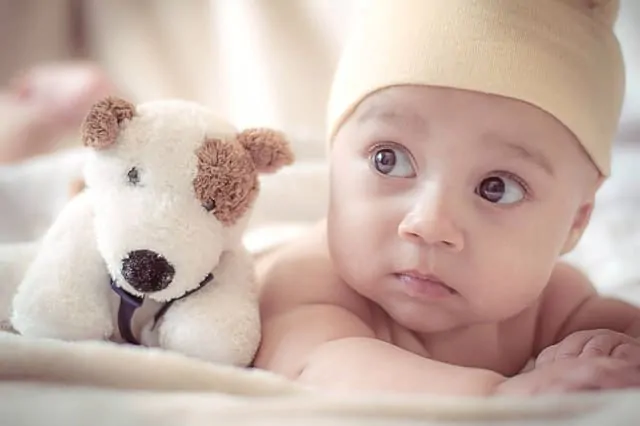
New moms have a decision to make very early into motherhood — to breastfeed or not to breastfeed. This is a very personal decision, and maybe you’ve already begun weighing the pros and cons of breastfeeding. Even though breastfeeding is good for both mom and baby, it may not be the right choice for everyone, and that’s ok! While research shows that breastfeeding can help a baby’s ability to fight infections and lower the risk of asthma, SIDS, and asthma, your pediatric dentist in Long Island wants you to know that breastfeeding may also affect your baby’s teeth.
Breastfeeding and Bite Development
Right after babies are born they immediately start growing. They also start developing teeth. Now, while these tiny teeth may not be visible right away, the process of tooth development begins very early, and there are things that can affect the way teeth erupt in the mouth and, in turn, affect the way a baby’s bite develops. Common baby things such as bottles, pacifiers, and thumb-sucking can actually disrupt the natural shape of a bite. However, choosing to breastfeed instead of bottle-feeding may help reduce the risk of this disruption and allow the bite to develop as nature intended. In fact, research shows that babies who were breastfed for the first six months had a lower chance of developing bite alignment concerns such as overbites and crossbites than babies who did not breastfeed or did so for less than six months. However, breastfeeding alone won’t prevent all bite concerns… as pacifiers, thumb-sucking, and even genetics can still contribute to bite development.
Baby Bottle Decay
One thing that commonly affects infant and toddler teeth is something called baby bottle decay. This early-life problem is exactly what it sounds like — tooth decay caused by drinking out of a bottle. However, it’s not the bottle that causes decay but rather what’s often inside the bottle. Things like milk, formula, and juice often contain high amounts of sugar, and as everyone knows, your pediatric dentist in Long Island does not like sugar. But does this mean that bottle-fed babies are automatically going to get baby bottle decay? Not necessarily. Prolonged exposure to sugary drinks is the problem. To help reduce the risk of baby bottle decay, avoid giving your child anything in their bottle besides water at nighttime, naptime, or when they will be allowed to drink from their bottle over a long period of time. Additionally, breastfed babies often have a lower chance of developing baby bottle decay since there isn’t an opportunity for them to nurse a bottle all night.
Breastfeeding and Cavities
Now, it’s important to note that even though breastfeeding can reduce the risk of decay, cavities can still form. Breastmilk, like cow’s milk and baby formula, does still contain sugar, but because breastfed babies are only drinking during feeding time, their exposure to these sugars is more controlled and limited. Therefore, the risk of decay and cavities is also reduced.
As you continue to research whether or not breastfeeding is right for you, keep in mind that whichever you choose it’s still important to start taking care of your baby’s oral health early. To do this, make sure you gently rub a damp washcloth over your child’s gums after each and every feeding to help remove some sugars that may get left behind. Also, make sure to schedule an appointment with your pediatric dentist in Long Island by the time your baby turns one and to come back every six months. These early dental appointments will help introduce your child to both the dentist and good oral health habits early in life and sets them up for a lifetime of healthy, happy smiles.